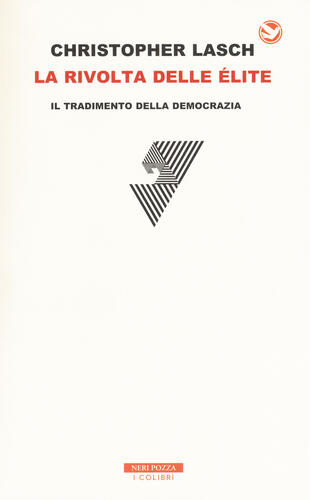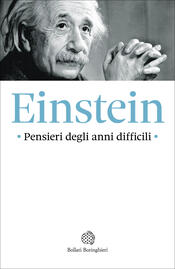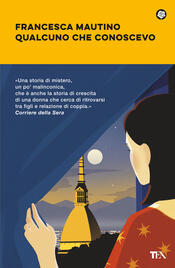Sinossi
"La rivolta delle élite" ha prefigurato la nascita dei populismi odierni, di quella "secessio plebis" che si comprende appunto soltanto come una naturale conseguenza della rottura del legame sociale operata tempo fa dalle élite. Il libro ritrae per la prima volta, nei suoi tratti essenziali a noi oggi così familiari, quella "élite liberale" e cosmopolita di tecnocrati, manager e agenti della comunicazione che determinano le sorti delle società contemporanee: uomini che si sentono a casa propria soltanto quando si muovono, quando "sono 'en route' verso una conferenza ad alto livello, l'inaugurazione di una nuova attività esclusiva, un festival cinematografico internazionale". Uomini che, in possesso di "una visione essenzialmente turistica del mondo", lasciano volentieri l'idea di una residenza stabile a una "middle class" ritenuta "tecnologicamente arretrata, politicamente reazionaria, repressiva nella morale sessuale, retriva nei gusti culturali". Uno "smart people" che, a Hong Kong come a Bruxelles o a New York, si sente "creativo", ma la cui creatività è rivolta soltanto a "una serie di attività mentali astratte svolte in un ufficio, preferibilmente con l'aiuto di un computer, e non alla produzione di cibo, case o altri generi di prima necessità". Il solo rapporto che, nel liberalismo moderno, l'élite ha con il lavoro produttivo è, per Christopher Lasch, il consumo. Per il resto essa vive in una "iperrealtà", un mondo simulato di modelli computerizzati, dove non ne è più nulla del mondo comune e dove l'ossessione fondamentale è il controllo, la "costruzione della realtà" (diremmo, con il termine oggi in voga, la "governance"). Lasch non si sottrae alla questione di cosa opporre alla rottura del legame sociale prodotta dalla rivolta delle élite. Nel sindacalismo agrario e operaio americano dell'ottocento, confluito poi nel "People's Party" e nel "Partito Democratico", vi è, secondo lui, la possibile risposta: l'esperienza di comunità fondate su valori come l'eguaglianza delle opportunità, la competenza, la mutua collaborazione, e per questo "capaci di autogoverno".
- ISBN:
- Casa Editrice:
- Pagine: 255
- Data di uscita: 14-09-2017
Recensioni
This book was written right at the end of Lasch's life and it reads like it: he pulls no punches in telling the chattering classes what he thinks about them and the cultural trends they are presiding over. It is surprising this was published two decades ago since the criticisms are not only still ap Leggi tutto
When Christopher Lasch died on Valentine’s day in 1994, America lost the most profound of her critics. His final book, The Revolt of the Elites, was published a year after his death. It is a group of discrete but thematically linked essays that continue the concerns of his previous book, The True an Leggi tutto
Of all the thinkers and intellectuals of the last 40 years, none were as piercing, original, and prophetic as Lasch. In the 1970s, he predicted that the student radicals would become good Reaganites, or at least that their revolt would not upset the power structure. Here, as he stared at death, he s Leggi tutto
The most enjoyment I got out of reading this book is the irony at the heart of its existence. Much of Lasch’s ire is directed at academia. Rightly, he accuses the academy of being, bluntly, a circlejerk. I am left asking after the fact – who is this book for, if not those who already accept its crit Leggi tutto
Great social commentary. Highly recommend. It's almost a mini-worldview primer, exploring the ways Marxism and CRT has seeped into academia and the media. But he also has lots of other things to say. Quite prophetic for 1995, though I suppose that just shows it's been a long time coming. I also enjoy Leggi tutto
3.5☆
This is my first Lasch. I have been told he is one of the few recent writers adroit enough to sidestep the ideological bindings that tie down both the left and right. That assessment is certainly not wrong. For Lasch, the rise of the neoliberal elite is nothing like the forms of landed gentry or robb Leggi tutto
Ok, I think I may be on to something (as a result of reading this book) as to why they hate us so much...its (not surprisingly) about religion... "They", of course, are those on the political right, especially those on the extreme and religious right; "we" are those who consider ourselves to be "lib Leggi tutto
I definitely need to read less "criticism," although I picked this out mainly because it was cited a lot on the right in the 1990s as part of their argument that the elite of society was replacing an egalitarian culture with a cult of merit and social mobility. You might as well read Bloom or even B Leggi tutto
Citazioni
Al momento non ci sono citazioni, inserisci tu la prima!

























